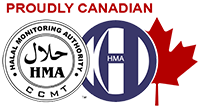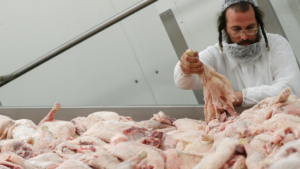The worldwide halal industry is expanding rapidly, but it comes with new problems. Consumers wonder if meat and processed meals are religiously acceptable since supply lines are lengthening and product alternatives are unlimited. Therefore businesses must demonstrate that their products are trustworthy. Halal certification can convey swiftly and effectively that your product fulfills the strictest Islamic dietary guidelines. Halal certification from a globally recognized organization, as well as an identifiable halal mark, quickly convinces Muslim customers that your product satisfies the highest quality and faith-based criteria. The standard halal implementation may help your business succeed in a competitive market by demonstrating to Muslim and non-Muslim customers that your products satisfy the highest quality requirements and are manufactured according to Islamic dietary regulations.
Most customers are concerned about the purity of their food, but this is also a deeply spiritual concern for Muslims. Furthermore, the rising demand for halal food has increased the motivation for manufacturers to falsely label non-halal items, increasing customer skepticism when frauds are revealed. To eliminate any uncertainty about your halal meat products in Toronto, have them verified by an internationally recognized halal certifying agency, such as “Halal Monitoring Authority” (HMA).
Non-Muslim consumers are also becoming more interested in halal food. Many customers are concerned about the ethical treatment of animals, the purity and healthfulness of processed food ingredients, and food safety. Because Halal is viewed as clean and healthy, certification can raise customer trust in these items and boost their attractiveness.
According to Research and Markets’ June 2019 Halal Food Industry Forecast 2019-2024, the Muslim population now stands at roughly 1.3 billion people – 23 percent of the world total – and the global halal food market is expected to reach $2.6 trillion by 2023. Increased consumer demand for HALAL meat and processed foods will be accompanied by economic development and increasing disposable incomes in key Muslim population centers such as Indonesia, Malaysia, India, Pakistan, Iran, and Nigeria. As markets expand and supply chains stretch, there will be more confusion regarding the origins of food and cosmetic items and their constituents. Entrepreneurship growth has significantly aided both developed and developing countries’ economic progress.
The phrase is frequently used as a synonym for employment creation and innovation that benefits society. Micro, Small, and Medium Enterprises are the three types of established entrepreneurs (MSMEs). These MSMEs account for more than 95 percent of all economic establishments worldwide. Entrepreneurs work in a variety of areas throughout the global economy.
Small and medium-sized companies (SMEs) play an important role in most developing nations. Small and medium-sized companies (SMEs) are critical pillars in the country’s economy for increasing growth and employment. SMEs also act as business units that engage with other business actors and clients to profit. According to the World Bank, formal SMEs in developing economies account for up to 60% of total employment and 40% of national income (GDP). These figures are substantially higher when informal SMEs in the Halal industry are included since they not only contribute to national economic growth but, more importantly, provide a path ahead for students who graduate from Halal science. Many continue to work on legislation, initiatives, and programs to strengthen support for local SMEs. However, because they are intended to help SMEs in general, it will be fascinating to see if SMEs working in the halal context may profit from them as well. The halal industry is growing rapidly, covering several sectors, ranging from halal meat to halal cosmetics. It is found that SMEs could develop, progress, and sustain their business in the global halal market if the business excellence model could be adopted to improve their SMEs ‘ business.
Since the importance of SMEs to the economy has been recognized, the government will have to play a critical role in creating and facilitating a favorable environment for SMEs. In 2010, 354 initiatives totaling RM 6.02 billion were implemented to develop high-performing and elastic SMEs. The government will continue to pursue policies, industries, and programs that will strengthen support for local SMEs.
The ever-changing business environment necessitates effective action plans and business strategies. These steps, however, are insufficient. They must adapt to environmental changes to sustain their competitiveness and businesses. Halal SMEs were singled out for special attention since they contribute considerably to economic development and have far-reaching ramifications for both employees and customers. The assessment for the worldwide halal sector relies on several factors, and the cost or worth of the industry was calculated to be USD two trillion1. The halal industry’s potential may be assessed by the rise in the Muslim population, which has coincided with an increase in demand for halal goods.
As halal demand grows in the future years, consider certifying your food, cosmetic, or pharmaceutical items to ensure that you can appeal to a diverse spectrum of consumers, including the rapidly rising Muslim segment and health-conscious buyers.



